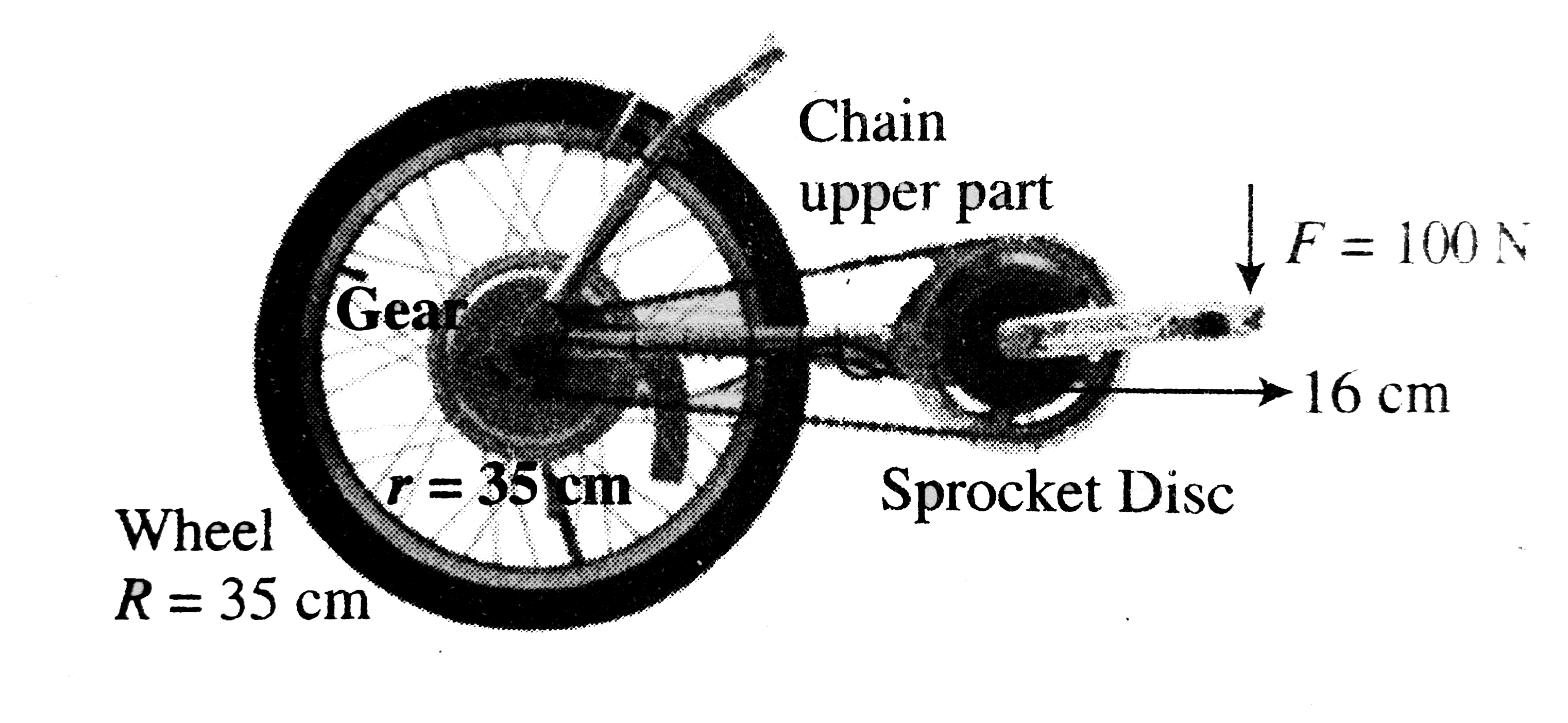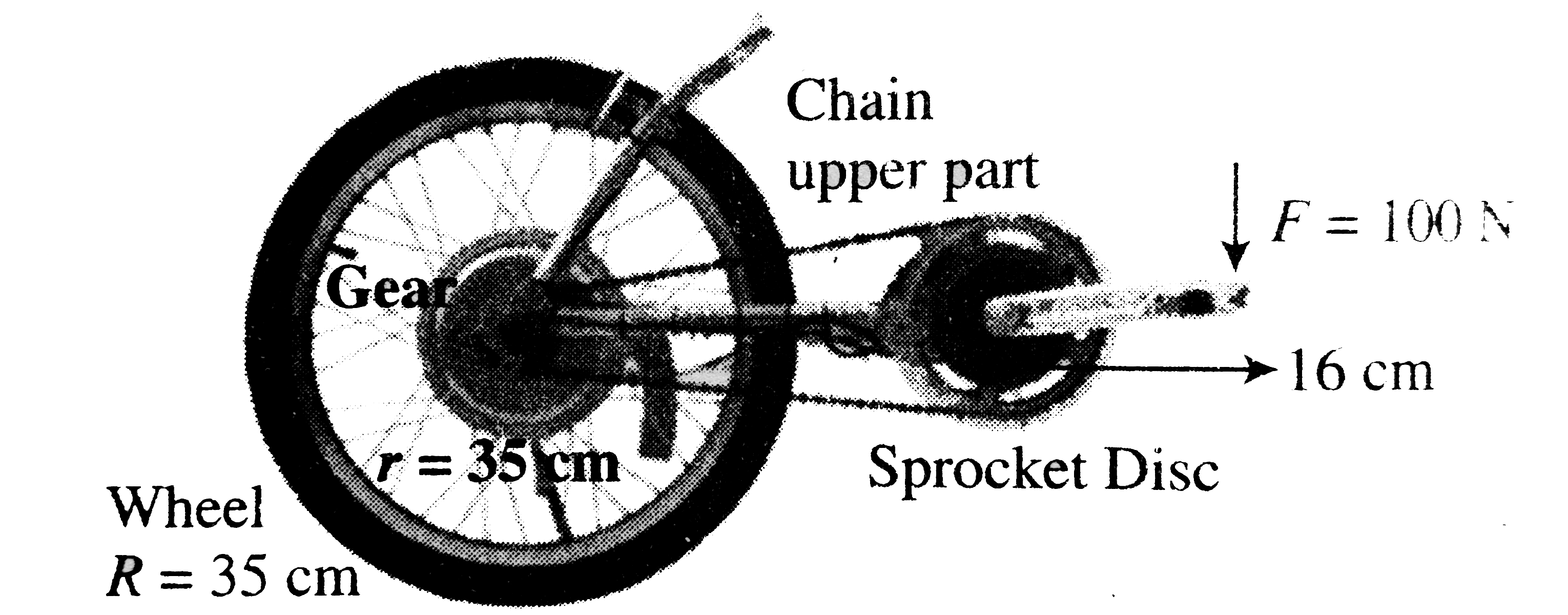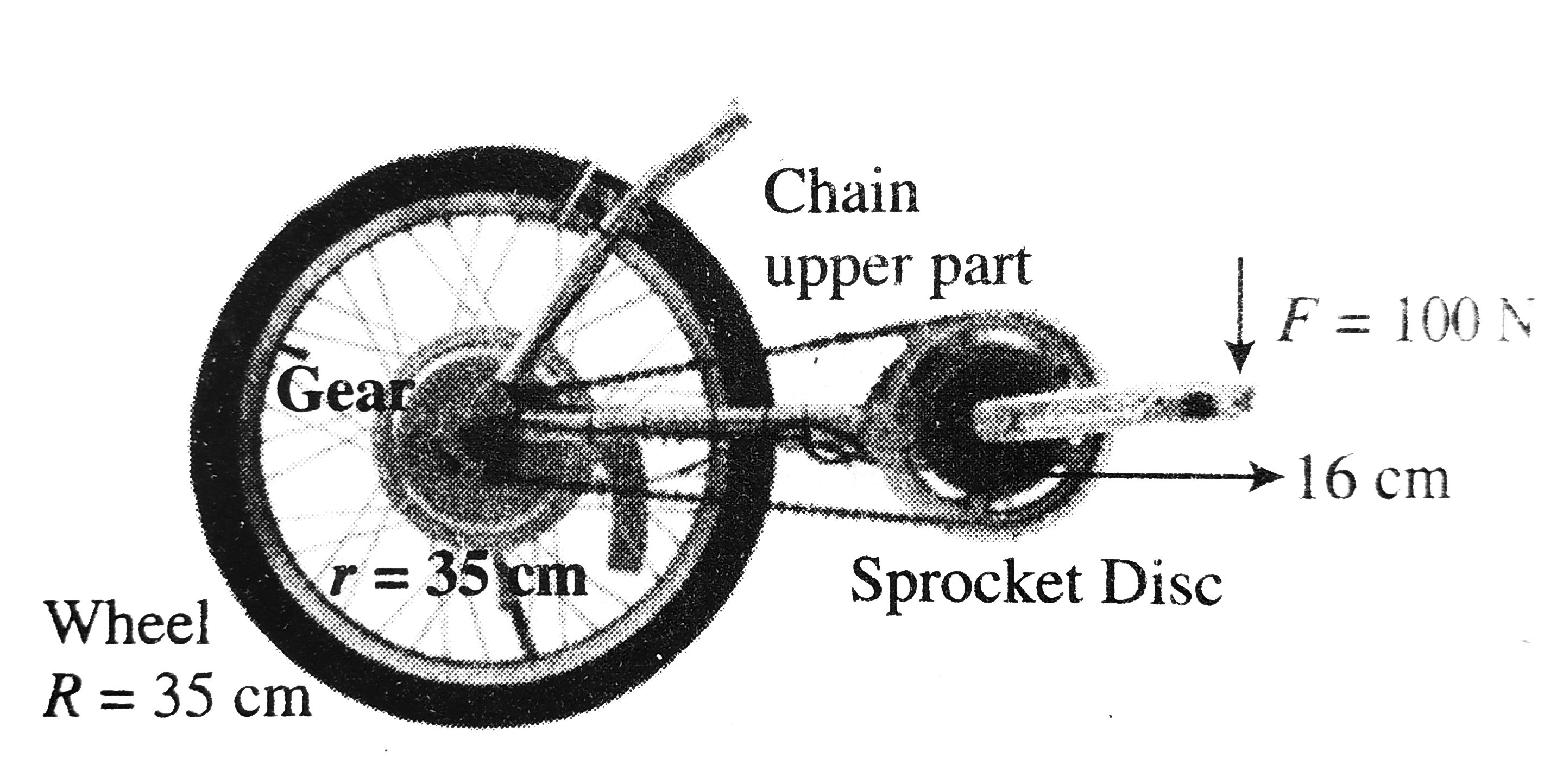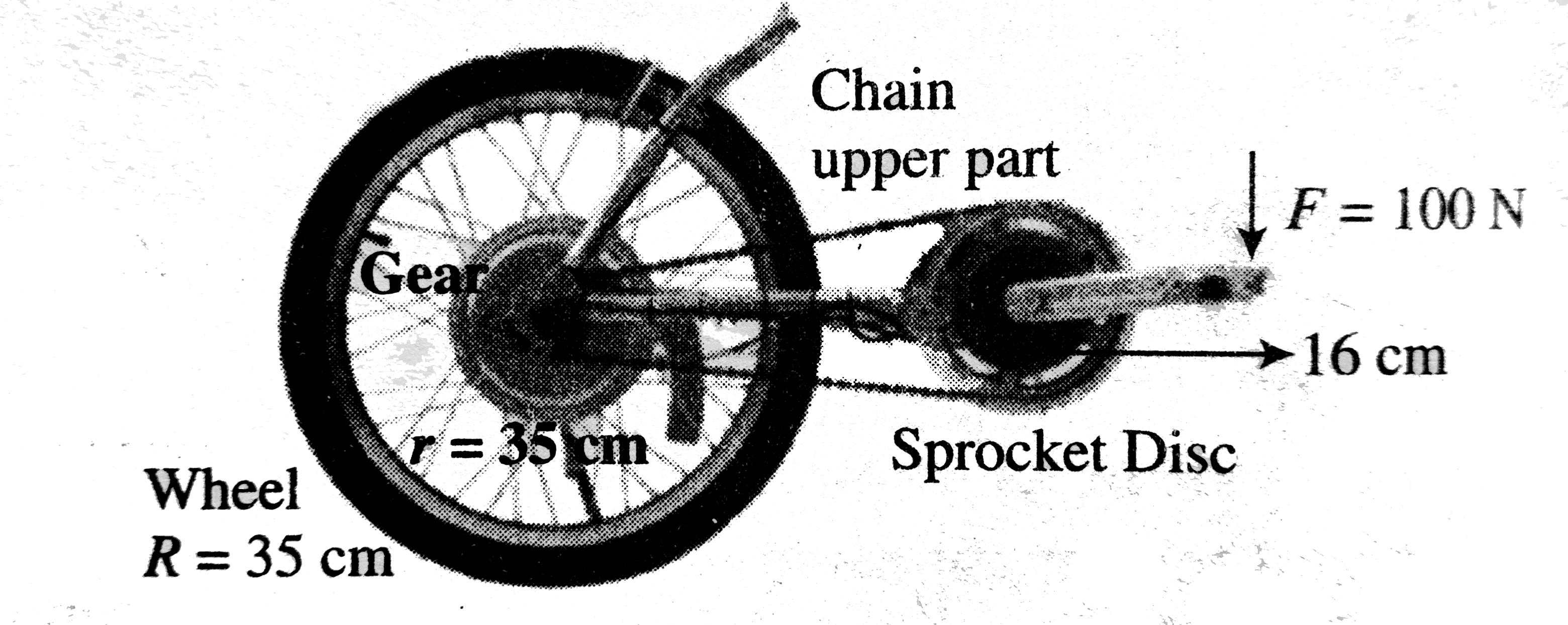A bicycle has pedal rods of length 16cm connected to sprocketed disc of radius 10cm. The bicycle wheels are 70cm in diameter and the chain runs over a gear of radius 4cm. The speed of the cycle is constant and the cyclist applies 100N for, that is always perpendicular to the pedal rod, as shown in figure. Assume tension in the lower part of chain is negligible. The cyclist is peddling at a constant rate of two revolutions per second. Assume that the force applied by other foot is zero when one foot is exerting 100N force. Neglect friction within cycle parts and the rolling friction.

The net force of the friction on the rear wheel due to the road is:
100N
62N
32.6N
18.3N
The correct Answer is:D
As ∑τ=0
160N×4cmf×35cm
f=160×4cm35cm=18.3N
Topper's Solved these Questions
- RIGID BODY DYNAMICS 1BOOK - CENGAGE PHYSICS ENGLISHCHAPTER - RIGID BODY DYNAMICS 1EXERCISE - Integer
11 Videos
- RIGID BODY DYNAMICS 1BOOK - CENGAGE PHYSICS ENGLISHCHAPTER - RIGID BODY DYNAMICS 1EXERCISE - Multiple Correct
9 Videos
- PROPERTIES OF SOLIDS AND FLUIDSBOOK - CENGAGE PHYSICS ENGLISHCHAPTER - PROPERTIES OF SOLIDS AND FLUIDSEXERCISE - INTEGER_TYPE
2 Videos
- RIGID BODY DYNAMICS 2BOOK - CENGAGE PHYSICS ENGLISHCHAPTER - RIGID BODY DYNAMICS 2EXERCISE - Interger
2 Videos
Similar Questions
A bicycle has pedal rods of length 16cm connected to sprocketed disc of radius 10cm. The bicycle wheels are 70cm in diameter and the chain runs over a gear of radius 4cm. The speed of the cycle is constant and the cyclist applies 100N for, that is always perpendicular to the pedal rod, as shown in figure. Assume tension in the lower part of chain is negligible. The cyclist is peddling at a constant rate of two revolutions per second. Assume that the force applied by other foot is zero when one foot is exerting 100N force. Neglect friction within cycle parts and the rolling friction.

The speed of the bicycle is
View SolutionA bicycle has pedal rods of length 16cm connected to sprocketed disc of radius 10cm. The bicycle wheels are 70cm in diameter and the chain runs over a gear of radius 4cm. The speed of the cycle is constant and the cyclist applies 100N for, that is always perpendicular to the pedal rod, as shown in figure. Assume tension in the lower part of chain is negligible. The cyclist is peddling at a constant rate of two revolutions per second. Assume that the force applied by other foot is zero when one foot is exerting 100N force. Neglect friction within cycle parts and the rolling friction.

The tension in the upper portion of the chain is equal to
View Solution
Knowledge Check
What is the circumference of a circular disc of radius 14 cm?
A88 cmB44 cmC22 cmD11 cm
A bicycle has pedal rods of length 16cm connected to sprocketed disc of radius 10cm. The bicycle wheels are 70cm in diameter and the chain runs over a gear of radius 4cm. The speed of the cycle is constant and the cyclist applies 100N for, that is always perpendicular to the pedal rod, as shown in figure. Assume tension in the lower part of chain is negligible. The cyclist is peddling at a constant rate of two revolutions per second. Assume that the force applied by other foot is zero when one foot is exerting 100N force. Neglect friction within cycle parts and the rolling friction.

The power delivered by the cyclist is equal to
View SolutionA circle has radius 4cm. What is the length of its longest chord?
View SolutionA bicycle wheel, diameter 56 cm, is making 45 revolutions in every 10 seconds. Calculate the speed, in kilometre per hour, of the bicycle.
View SolutionA circle has diameter 16 cm . What is the radius of the circle ?
View SolutionAB is a chord of length 16cm of a circle of radius 10cm. The tangents at A and B intersect at a point P . Find the length of PA .
View SolutionA semicircular disc has a radius of 21 cm. Find its perimeter.
View SolutionThe radius of a wheel of a cycle is 70 cm and it takes 5 minutes to make 3000 rotations . Find the speed of the cycle in km per hour . (Take π=227).
View Solution
